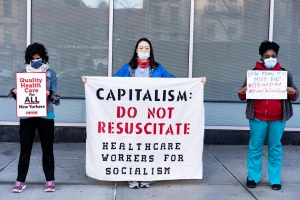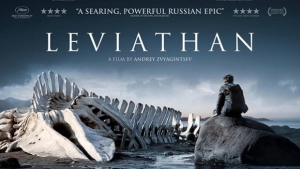
Science in a time of pandemic
Helena Sheehan continues the Culture Matters and Morning Star series on the Covid-19 crisis and various cultural activities, by looking at its effect on science. Photo: Dave McNally
OF THE many dimensions of the present pandemic, swamping our lives and suspending our normal reality, one of the most central to our culture has been the role of science. Every report on our all-virus-all-the-time news references science and the new media stars are epidemiologists, virologists, mathematicians, physicians and public health officials. My Facebook newsfeed has been dominated by amateur epidemiologists.
I do not mean this disparagingly. The times demand that we all inform ourselves and allow specialist knowledge to permeate our collective consciousness to find our way through this crisis. There have been all sorts of challenges to the fast-developing science of Covid-19, ranging from religious immunity to 5G susceptibility, but the over-riding story has been trust in science.
There was massive public pushback against the Johnson-Cummings flagging of a poorly conceived herd-immunity strategy and the Trump suggestion of disinfectant injections. In Ireland, where I live, the health minister — grandstanding with constant interviews and photo-ops — was quickly forced to backtrack and apologise after pronouncing on the 18 previous coronaviruses where no vaccine had been found. And there was disappointment in Africa when the Tanzanian president, with a PhD in chemistry, looked more to prayer than science and supported spurious theories on origins and remedies.
Science, of course, is not a simple matter. Science is always inextricably enmeshed in politics, economics, philosophy and culture. There is a long Marxist tradition of exploring science in all the complexity of its interactions, standing in contrast to the myopia of positivism and the obfuscation of postmodernism.
Generations of Marxists, from Marx and Engels, through Bernal, Haldane and Caudwell, to Gould, Levins and Lewontin, have embraced the cognitive capacity of science while highlighting the problematic shaping of science under capitalism.
Marxism explains this pandemic in terms of the whole network of interacting forces that have created it. Epidemiologists have been warning that such a pandemic was inevitable. Marxist writers who put epidemiology in a wider social-political-economic context, such as Mike Davis and Rob Wallace, have been clearly communicating to a wider public that industrialised agriculture, wildlife trafficking, hyperglobalisation, degradation of public health systems and big pharma-dominated research were creating the conditions for such a pandemic. Just as the 1918 flu spread by mobilisation for war, so Covid-19 has proliferated along the global circuitry of capital.
A Marxist approach also clarifies what is to be done. The current crisis demands that the priorities of public health override all other considerations — not only individual liberty but proprietary science and medicine. It thus runs counter to the whole trajectory of capitalism and points to the necessity for socialism.
This pandemic highlights the need for a global, public and open framework for science, focused on the urgency of finding preventative, diagnostic and therapeutic responses to this virus, particularly a vaccine. It should transcend all considerations of prizes, patents and profits. It requires transparent and international sharing of all relevant experimental and clinical information. The World Health Organisation (WHO) is the obvious body to co-ordinate this effort and the biggest obstacle to the optimal fulfilment of its mission is the US government.
The Trump administration has been negotiating with a German pharmaceutical firm to develop a vaccine for US-only use, pirating personal protection equipment en route to other nations and undermining and then defunding the WHO. This runs against everything the world needs today, with the US accusing China of trying to steal its research on vaccines and treatments for Covid-19, when clearly all such research should be in the public domain.
There is much media speculation on life after lockdown, some of it very shallow, but some of it more penetrating. In querying what has changed in us, in our society, as a result of this experience, many have said they do not want to return to our former normality. They have become increasingly aware of the devastation that capitalism has wrought on our bodies, societies and planet.
Things we were told were impossible suddenly became possible in these islands and elsewhere in this crisis — an end to a two-tier health service, increased funding for biomedical research and clinical resources, a ban on evictions, a rent freeze and a reduction in carbon emissions.
We have lived, however partially and temporarily, in a scenario where public health and welfare overrode the imperatives of the market. The government implementing these measures in Ireland were also responsible for running down our public health capacity and being on the other side of the class struggle. They will want to row back and it is the responsibility of the left, with considerable public support, to resist this.
Of the many memorable sights and sounds that have flowed through social media during this period, I could not refrain from sharing an image from a demonstration of New York health workers for this article. As you can see, its main banner reads CAPITALISM: DO NOT RESUCITATE.


